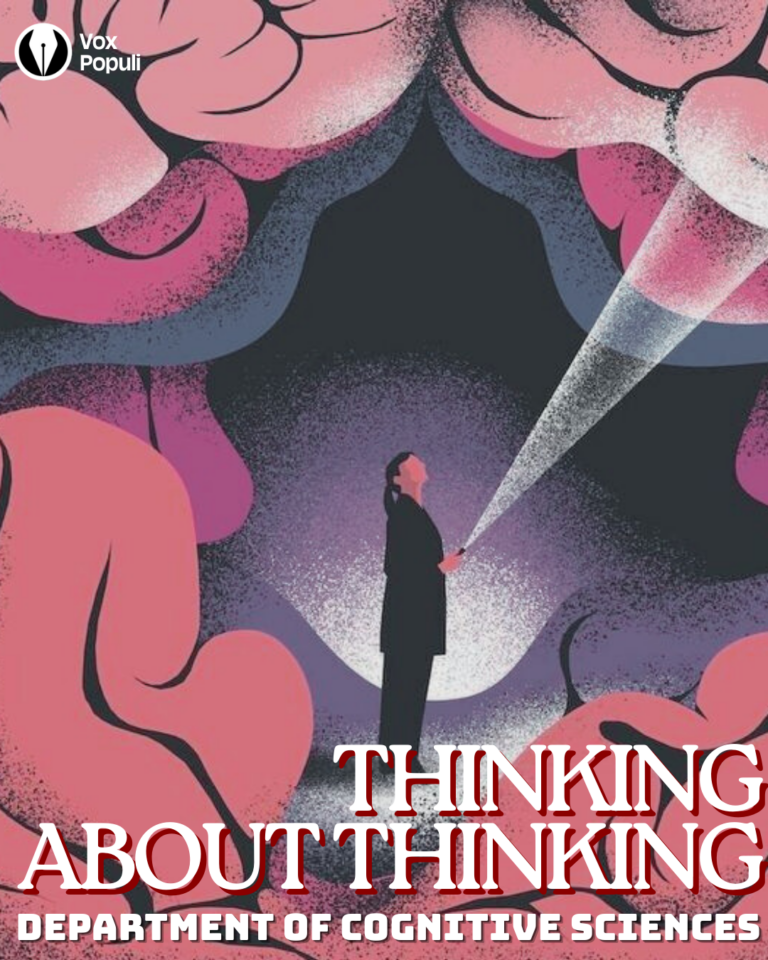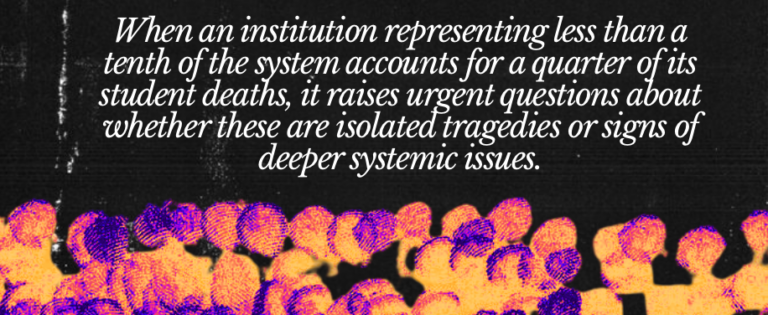For the first time in IIT Kanpur, Online Elections among the General Body were conducted for the formation of the Executive Committee of Hall 6. The elections, where the votes were cast on a web-based platform, were conducted by the Election Commission, Students Gymkhana. Here, Vox Populi presents a report on this process and the views of the various stakeholders on the conduction.
This happens to be the first time when an online medium is to be used for polling among the general body – which though was in discussion in the Senate way back since 2017-18. The Students Senate had recommended conducting elections in an online mode way back due to them being more accessible and comfortable to the general body. Yash Maheshwari, Chairperson, Students Senate, in this regard remarks,
“As the offline elections were working just fine and online elections were uncharted territory, even though recommended, the transition never happened. Now as the lockdown due to COVID-19 has forced us to shift everything online, it’s time that we start having online elections as well.”
A Subcommittee was formed for the same in 2018-19, which recommended that online voting should be welcomed and that the halls should adopt the same to test and improvise the process for campus-wide implementation in the future. Vedaant Sikka, the current Convener of the Council of Students Hostel Affairs, when asked about the instigation of these elections, stated:
‘The idea behind online hall elections was to ensure that the periodicity of tenures is maintained, and there is a proper scope of guidance and transfer of knowledge and experience from the previous HEC to the new teams. Thereby, considering the availability of all the necessary logistics, we decided to go with Hall 6 as the first hall to have online elections. This was announced in the first regular CoSHA Meeting on October 3, 2020, and was planned to be followed as per the Model Hall Constitution.’
As an alternative to online voting, a process of nomination was followed for the Hall Administrative Body selection in Hall 2. Sahil Khan, ex-President – Hall 2, had his concerns regarding having elections. He felt that the current elections are involving Y19 students – who may not have even visited their parent hall, let alone handle it’s governance given their lack of exposure. He added, “We adopted a different structure for the Hall committee(HAB) 2 years back, which involves both 2nd and 3rd year students. Given this, the Y18 we nominated were proven executives who had previous exposure to Hall administration for an entire year. These people know the inside-out of Hall administration. Moreover, we’ve nominated only 3 people to continue the minimal functioning required from home and will proceed to election’s once the situation is more clear.”
When asked why she didn’t explore the option of forming the HEC through nominations, Priya Tholia, the outgoing President of Hall 6 felt that nominations are an undemocratic procedure involving only 10 ex-HEC members. She remarked, “Those HEC members would have their personal biases, and even if not, it would not be very hard to influence them.”
The election procedure began with the appointment of Chief Election Officer for Hall-6. Nominations for the same were invited in September, following which the previous HEC organized a ‘Know Your HEC’ session. The nominations were called for ten posts with a deadline for submission of manifestos two days later. Along with this, the Code of Conduct was imposed. The candidates could campaign through posters, short videos, messaging, and meetings on any video calling platform. On the last day of campaigning, a SOAP box was organized, which lasted for nearly nine hours. Elections were held on the scheduled date, 1st November, through an online portal, developed as an academic project, and maintained by the Programming Club, IIT Kanpur. The polling was conducted smoothly with results being declared almost immediately. Though the turnout was about 220, which was lesser than 295 votes last year, considering the absence of a first-year batch, who are generally considered the most active ones in the HEC elections, this number seems satisfactory.
Though the logistics were well-arranged, a lot of concerns were raised on the efficacy of online elections. The major issue which surfaced was regarding the participation of people with limited to no internet connectivity. Thus, the elections were not thought to uphold the notion of democracy or provide fair chances to everyone to vote or contest, given the unfavorable conditions. The less time given for campaigning was also questioned upon, amidst the hectic ongoing online semester. Also, the genuineness and transparency of the process remained suspicious to many and there were doubts on possible misconduct or malpractices. In our discussion with Prince Kumar, (Chief Election Officer, Students Gymkhana), we were told the system was already used during the Senate meeting held in August, and the result was flawless, with a unique verification code used for registering considering just the one-day usage. We were further notified, “Other than that, for the first time, we implemented a system which sent an automatic mail whenever someone cast a vote, which verifies their vote; and all others who haven’t voted would receive a mail at the end of the voting period notifying them of the same. So in my opinion, we took care of all the issues.”
However, the GBMs told that they didn’t receive a verification mail after voting. There were even residents who mentioned that they did not receive a single email and were unaware of this process until they got the voting access.
To address the common doubts raised, the Election Commission floated a set of FAQs in return to these queries, stating various possible solutions. The election for the posts, where people were willing to file the candidature but were incapable currently, was postponed to future dates. A centralized repository carrying the entire election content was maintained and provided to the hall residents. As mentioned, the sizes of the uploaded files and recorded audios and videos were kept minimum, to make them accessible to all. The candidates were also affirmed to be given access to extra internet if required. The virtual campaigning process was claimed to be less time consuming and the entireties were seen as compensating the repetitive campaigning visits made in any regular campus election. Also, a tried and tested software was deployed in voting, which was asserted to be reasonably reliable and genuine.
Despite all this, in general, the candidates felt restricted due to online mediums and the absence of face-to-face campaigning where GBMs could freely pose questions and concerns. Infeasibility of conducting meetings on online video calling platforms due to the hectic online semester added to their worries. They had to reach out to everyone individually or through social media posts, which was challenging. They felt that at some places, Election Commission failed to cover the gap developed due to this pandemic. Though they found the online conduction to be less tedious and faster, the alternative of the door to door campaigning was felt highly absent in the current arrangement.
Despite the issues with campaigning, the candidates expected a higher voting percentage. Lastly, the candidates opined on working for the posts entirely online. They believed this scenario’s advantage is frequent HEC meetings in the online mode. Though, the possibilities of doing groundwork and establishing connections with the hall administration and workers are significantly non-existent.
To gauge the success and reach of online campaigning and elections, we also reached out to the GBMs for their opinions.
“To be honest, I don’t see the point of having elections if the hall isn’t open, and only Ph.D. students are on campus.” – A General Body Member
Some found elections for posts of mess, canteen and gardening secretary to be unnecessary right now.
Some members were a little uncomfortable with receiving personal texts from candidates on WhatsApp. They also felt the manifestos hadn’t been altered according to the needs of an online semester. A senior GBM expressed her concern regarding the lack of experience of Y19s on campus. She suggested, ” Allow only students on the campus to run for elections and vote for it because it is ultimately them who are getting affected by the decisions of the council at this point.” There was also an emphasis on UGs and PGs’ unequal representation for the posts, which was attributed to PGs’ lack of awareness as they’re still settling down on campus.
Though there was optimism too regarding online elections and appreciation for the efforts put in by the EC in making the process reliable and fair, the ‘Online Election’ process still has a long way to go to be perfect. Henceforth, in the online election proceedings and with the prospect of resorting to this process for upcoming elections as well, a proposal for addressing all its pertinent aspects under one group was put forth in the Senate and the Sub-Committee is formed to examine various processes and ensure that the process is improved for General Elections 2021.
Credits: Ananya Gupta, Astha Pant, Avisha Gaur, Devansh Parmar, Snehil Saluja.











